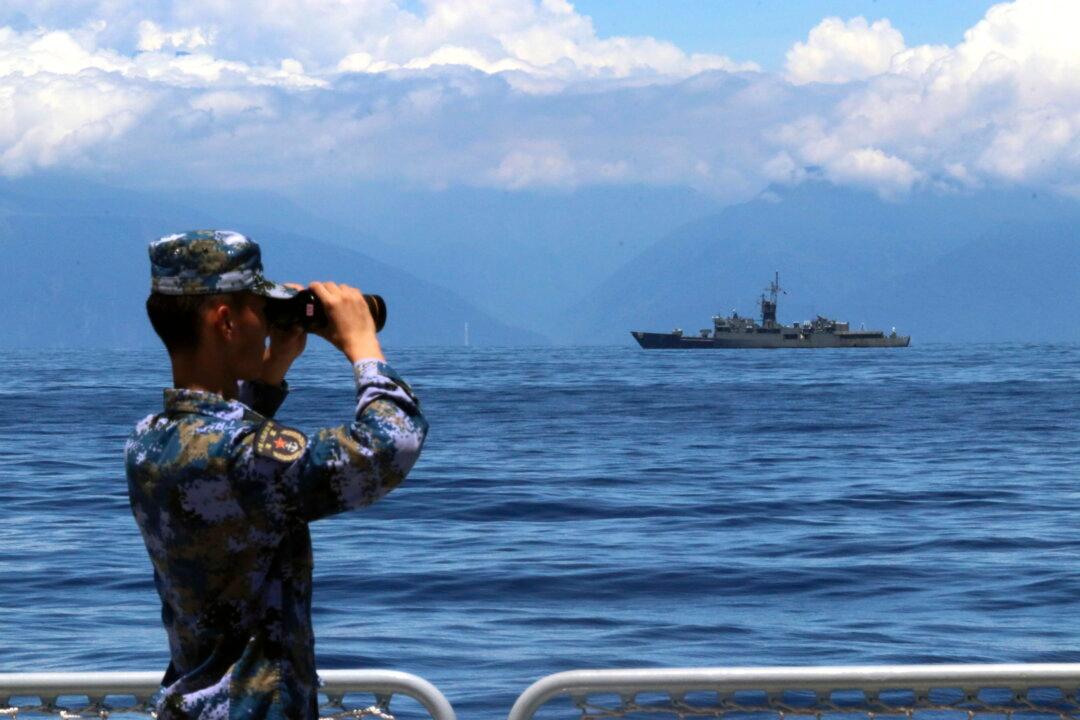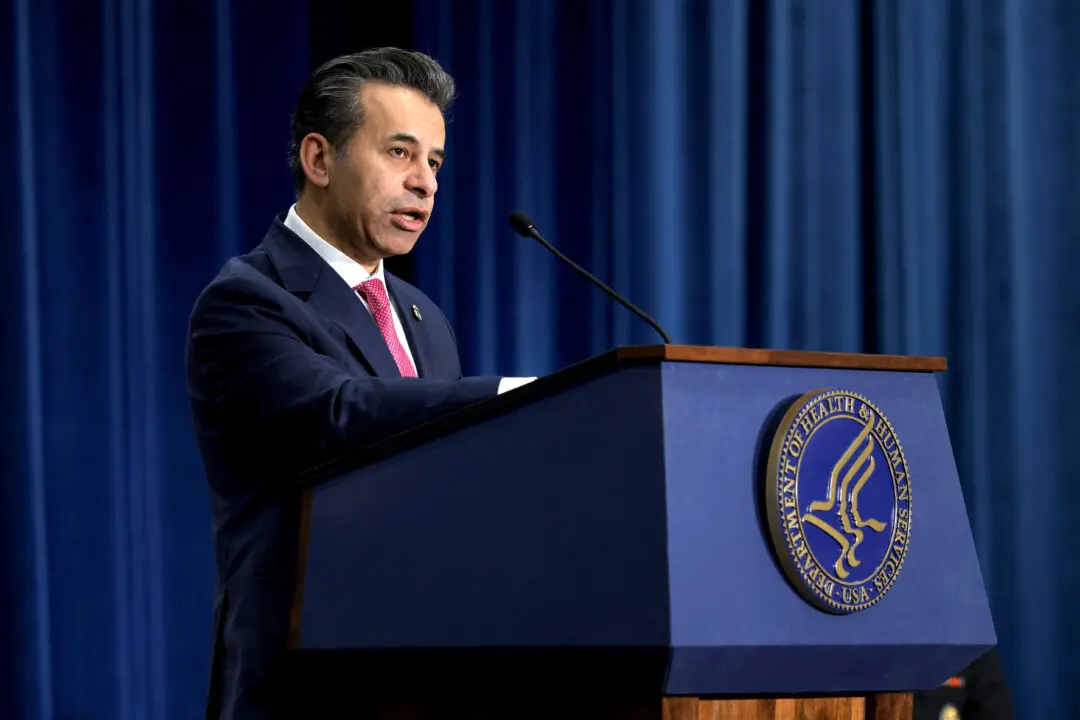The U.S. Navy’s frontline fleet commander warned that China’s military is capable of imposing a blockade around Taiwan, but doing so would trigger a concerted effort by the international community to intervene.
Vice Adm. Karl Thomas, commander of the U.S. Seventh Fleet, said in an interview with The Wall Street Journal on Tuesday that China has “a very large navy” that can “bully and put ships around Taiwan.”





